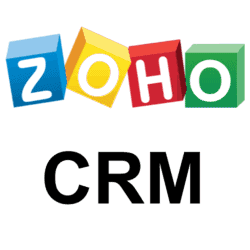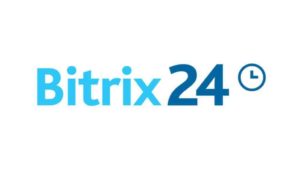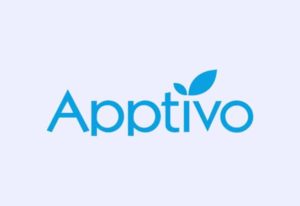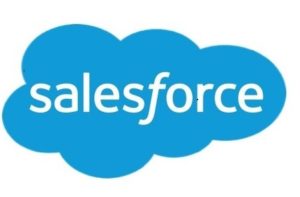- Lead Management
- Contact Management
- Performance Management
- Marketing Features
- Team Collaboration
- Telephony
- Reporting
- Customer Portal
1. Lead Management
Zoho CRM’s lead management feature is one of its crowning jewels. Not only does it streamline the process of moving leads through the sales pipeline, but it also helps you generate more leads. The software offers users several ways to pull in leads, including web forms, email campaigns, live chats, direct marketing, and APIs. Additionally, it can harvest leads from multiple channels, including social media and LinkedIn.
The software intuitively assigns each potential lead with a profitability score based on user-set metrics such as location, job title, positive social media mentions, response times, or survey results. Once a lead is generated and qualified, the software automatically assigns it to a sales representative, saving you the trouble of manually assigning tasks. What’s more, you can also set workflow rules to ensure that tasks are assigned to team members according to parameters such as seniority, location, product, or department.
Furthermore, the software’s AI tool, Zia, spots, and alerts you of any irregularities in the sales process using trend analysis. Helpfully, it also provides you with the optimum times to follow up on emails and calls to convert leads into deals. Zia also allows you to forecast the leads each campaign will generate.
2. Contact Management
This CRM app’s contact management module gives you a bird’ s-eye view of all your contacts. Along with storing necessary information such as names, email addresses, and locations of your contacts, the module also allows you to monitor your interactions with them. These include emails sent or received, social media mentions, and purchase orders. Uniquely, each contact has a history tab where you can store detailed notes on them. These details could help you win some brownie points with them the next time you interact. Another great feature is the built-in analytics, which enables you to identify your most valuable accounts and analyze their buying patterns. You can then set up loyalty programs for these accounts and assign your most experienced employees to them.
The contacts dashboard acts like a central command center where you can keep track of your accounts, collaborate with vendors, and monitor all your transactions from one location. Importantly, the software supports parent-child account designations, so you can associate accounts with their subdivisions or subsidiaries, negating the need for a separate account for each. This unification will help you keep track of and cater to the different needs of the same company more efficiently.
3. Performance Management
The software gives you several tools with which to monitor and improve your sales team’s performance. First, you can set realistic goals for your teams to achieve by forecasting your revenues and assigning targets to each team member. Helpfully, you can track each forecast by employee, team, or territory. This feature not only gives you more precise insights into your company’s sales performance but also helps you identify star performers and assess the strengths and weaknesses of each team based on the targets they have met.
Second, the software allows you to turn tasks in your sales pipelines, such as email follow-ups and lead conversions, into a game that employees can take part in with its Gamescope feature. This activity acts as an incentive for team members to complete more tasks and chase down deals more efficiently. The feature allows sales representatives to initiate a game with a coworker or to play as a team, adding a bit of fun to mundane workplace activities.
Finally, the app has a Territory Management tool that classifies your sales team’s workloads according to the geographical location of your leads. This classification gives you a comprehensive overview of your sales transactions by territory, allowing you to pinpoint your high-profit regions. You can then organize your teams and allocate the right resources to each region accordingly. You can also set territory rules that the software uses to assign each account to the correct location automatically.
4. Marketing Features
Zoho CRM has three marketing tools with which you can generate leads: campaign module, web forms, and email marketing. With the campaign module, you can track any marketing campaign from an online advertisement to a PR event or TV commercial. The software tracks metrics such as campaign duration, location, budget, and actual costs, giving you invaluable data on the ROI on each campaign.
With the app’s web forms, you can capture visitor’s information from your website directly into your CRM software. You can set up a web form for any custom module you have in your account, including leads, contacts, and widgets. The software’s form builder has a drag-and-drop functionality that makes it easy to create a customized web form for your website. You can even add Captcha, email opt-out options, and a privacy policy consent to your forms. Additionally, you can personalize it even more by changing the font, text color, background, alignment, and the width of your form. Once a visitor fills out a web form, the software automatically captures all the data as a lead.
Like web forms, the software’s bulk email feature is available for all your custom modules. With it, you can either send out mass emails immediately or schedule it for a later date. The software has several email templates to choose from for different categories, such as seasonal holidays, follow-ups, and product promotions. Furthermore, you can enable autoresponders to follow up with your contacts within an email campaign. This feature, however, is only available for the leads and capture module. Importantly, the software comes with analytics that tracks email clicks, open rates, and bounces.
5. Team Collaboration
Zoho CRM does not have an inbuilt chat app. For that, you will have to integrate with a third-party chat application. That said, team members can collaborate, share sales updates, discuss ideas, and make significant announcements using the software’s Feeds Forum. Employees can use the forum to start a group chat or a one-on-one conversation with a coworker. Helpfully, they can also share data files, images, or presentations with their coworkers by dragging and dropping the related records into the feed box. You can also draw an employee’s attention to a post by tagging them in the notes, and the software sends them a notification of your action.
6. Telephony
The software’s PhoneBridge connector allows you to integrate with over 50 telephony apps, letting you make outbound calls with one click from within the software. If you add customer calls to your sales pipeline, the software automatically schedules and assigns calls. It then sends you reminders for upcoming calls and alert notifications if you have missed one. Helpfully, during a sales call, you can take notes and create follow-up activities using the pop-up call window.
When it comes to inbound calls, the app will let you know if the caller is an established prospect or someone new so that you can prepare accordingly. The software automatically logs all your outbound and inbound calls in the activities module from where you can check call details and replay recordings for clarifications. Managers can view reports based on call data and gain valuable insights into team performance. For example, using this information, they can find team members who excel at making sales calls and assign a majority of the outbound calls to them in the future.
7. Reporting
The software has over 40 default reports in the sales, activity, and marketing modules to choose from. Apart from these, you can build custom reports across multiple modules as well. All reports are available in tabular, summary, or matrix views with advanced filters to customize. Similarly, you can turn your reports into a visual representation of your team’s performance using a variety of chart options ranging from bar to funnel graphs and pie charts. Once a report is generated, you can send it to your team as an email attachment or export it as XLS, PDF, or CSV files. Managers can also use the sales and marketing reports to populate their team’s dashboard, giving team members a visual reminder of their performance.
8. Customer Portal
Customers and vendors can use the app’s client portal to update account information and view their purchase orders and invoices. Similarly, affiliate partners can access old leads and add new ones through this forum. Another highlight of this feature is that you can set up E-catalogs within the portal so that customers see all your products or services every time they log in to view their account.




